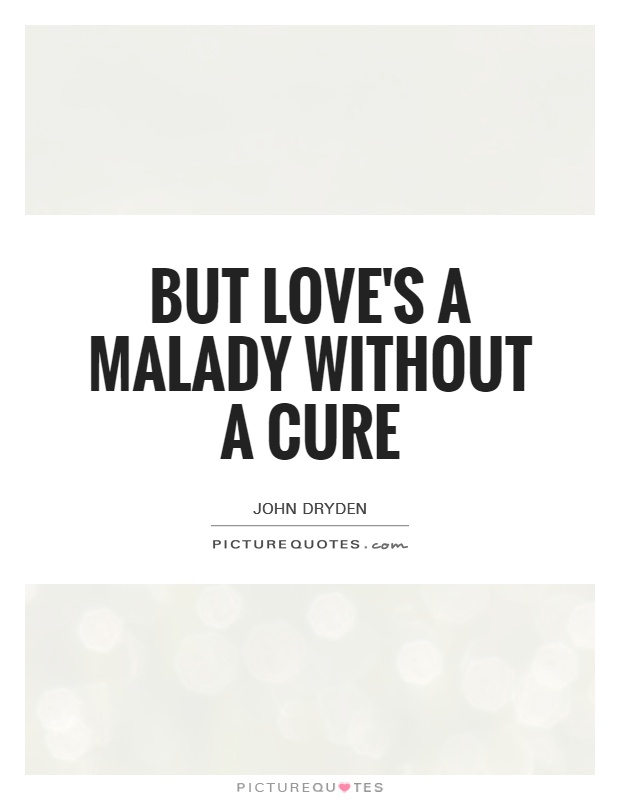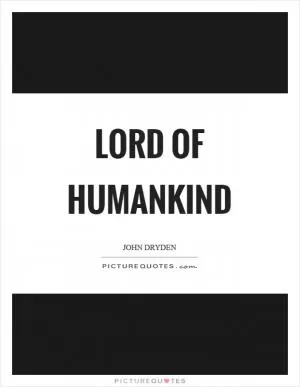But love's a malady without a cure

But love's a malady without a cure
John Dryden, a prominent English poet, playwright, and critic of the 17th century, was known for his insightful and often cynical views on love. In his works, Dryden frequently explored the complexities and pitfalls of romantic relationships, portraying love as a powerful force that could both uplift and destroy individuals. One of his most famous quotes, "But love's a malady without a cure," encapsulates his belief that love, while beautiful and transformative, can also be a source of pain and suffering.Dryden's assertion that love is a "malady without a cure" speaks to the enduring nature of love's impact on the human heart. In his view, love is not simply a passing emotion or fleeting infatuation, but a deep-seated affliction that can linger long after the object of one's affection has departed. This idea is reflected in many of Dryden's works, where characters grapple with unrequited love, betrayal, and heartbreak, unable to find solace or relief from their emotional turmoil.
One of Dryden's most famous plays, "All for Love," explores the tragic consequences of love and passion. The play tells the story of the doomed love affair between Mark Antony and Cleopatra, two powerful figures whose love ultimately leads to their downfall. In the play, Dryden portrays love as a force that blinds individuals to reason and logic, causing them to make irrational decisions that have devastating consequences. Despite their best efforts to resist their feelings, Antony and Cleopatra are unable to escape the grip of love, leading to their untimely deaths.












 Friendship Quotes
Friendship Quotes Love Quotes
Love Quotes Life Quotes
Life Quotes Funny Quotes
Funny Quotes Motivational Quotes
Motivational Quotes Inspirational Quotes
Inspirational Quotes